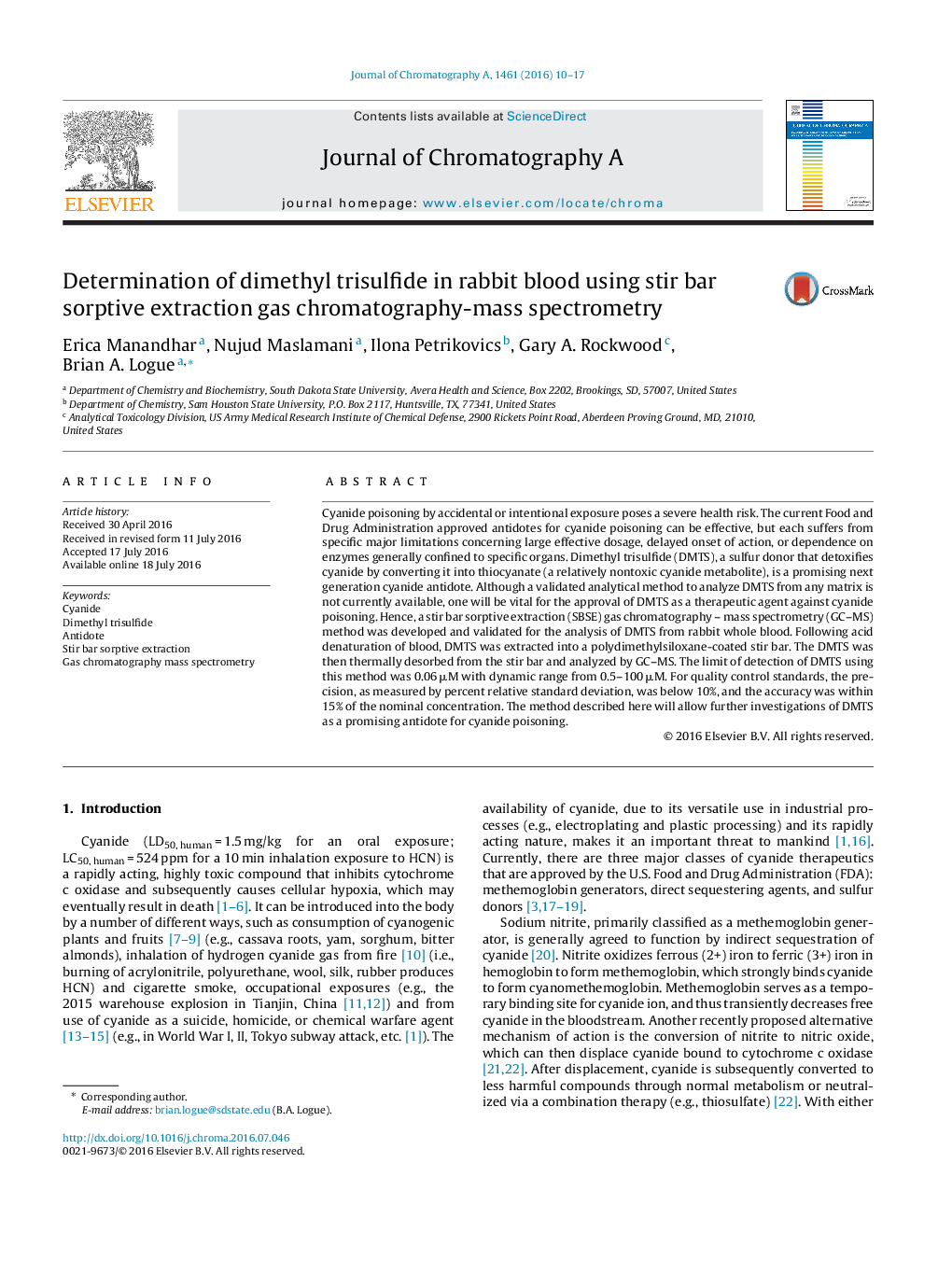| Article ID | Journal | Published Year | Pages | File Type |
|---|---|---|---|---|
| 7609892 | Journal of Chromatography A | 2016 | 8 Pages |
Abstract
Cyanide poisoning by accidental or intentional exposure poses a severe health risk. The current Food and Drug Administration approved antidotes for cyanide poisoning can be effective, but each suffers from specific major limitations concerning large effective dosage, delayed onset of action, or dependence on enzymes generally confined to specific organs. Dimethyl trisulfide (DMTS), a sulfur donor that detoxifies cyanide by converting it into thiocyanate (a relatively nontoxic cyanide metabolite), is a promising next generation cyanide antidote. Although a validated analytical method to analyze DMTS from any matrix is not currently available, one will be vital for the approval of DMTS as a therapeutic agent against cyanide poisoning. Hence, a stir bar sorptive extraction (SBSE) gas chromatography - mass spectrometry (GC-MS) method was developed and validated for the analysis of DMTS from rabbit whole blood. Following acid denaturation of blood, DMTS was extracted into a polydimethylsiloxane-coated stir bar. The DMTS was then thermally desorbed from the stir bar and analyzed by GC-MS. The limit of detection of DMTS using this method was 0.06 μM with dynamic range from 0.5-100 μM. For quality control standards, the precision, as measured by percent relative standard deviation, was below 10%, and the accuracy was within 15% of the nominal concentration. The method described here will allow further investigations of DMTS as a promising antidote for cyanide poisoning.
Keywords
Related Topics
Physical Sciences and Engineering
Chemistry
Analytical Chemistry
Authors
Erica Manandhar, Nujud Maslamani, Ilona Petrikovics, Gary A. Rockwood, Brian A. Logue,
